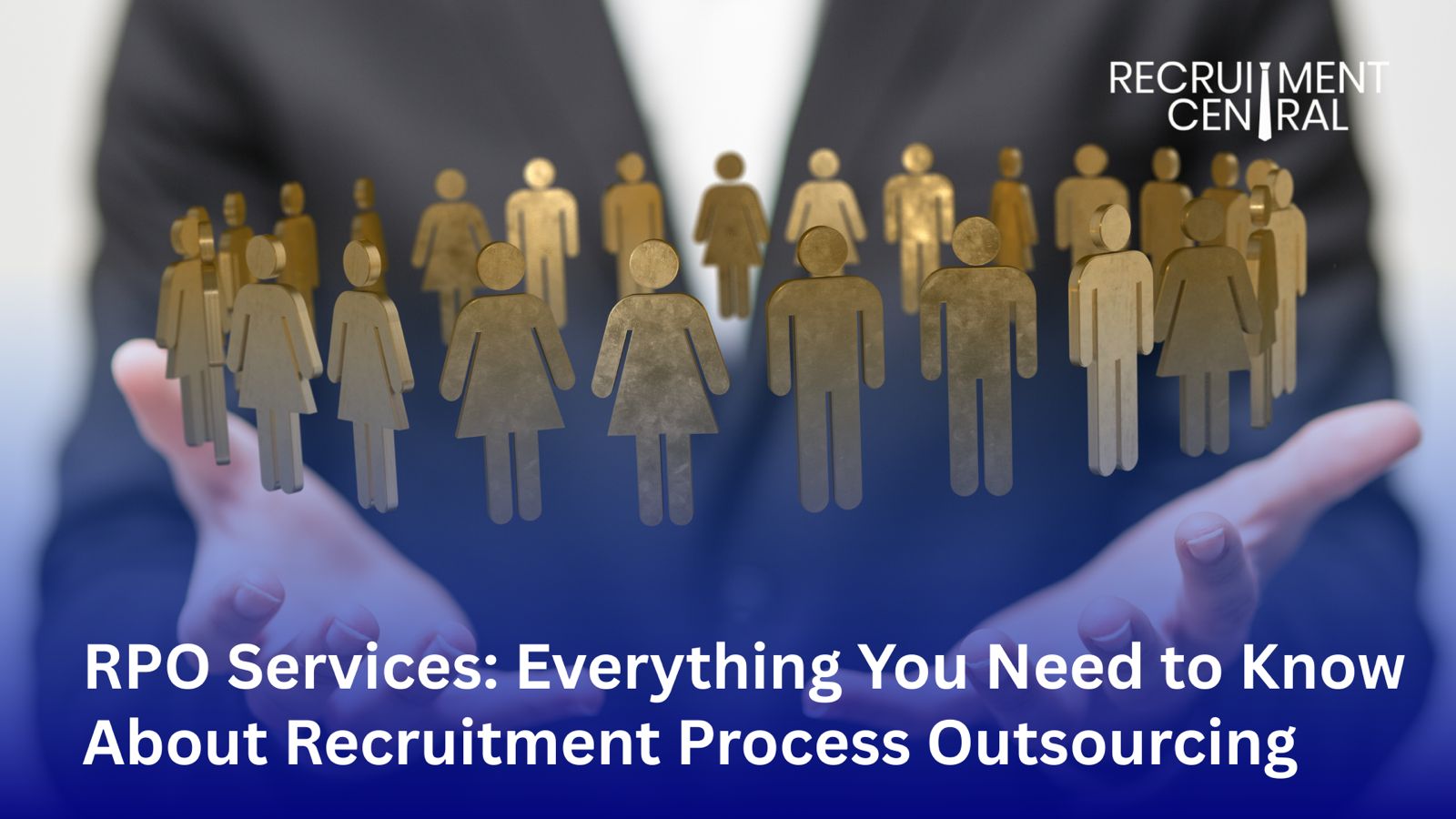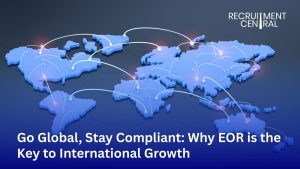Introduction
Expanding into Asia feels like unlocking a new level of growth, but reality is not that simple. I know a lot of people who are thinking of doing the same, but all of them have the same frustrations: hiring takes forever, and setting up a local entity takes a lot of time and money.
Market talent is everything; those delays can quietly choke momentum. To help you overcome all of these problems, recruitment process outsourcing (RPO) comes in. By choosing it, you bring in experts whose entire craft is building teams quickly in a compliant way.
In fact, I came across research that said RPO can trim time-to-hire by nearly 40%. Look at GSK in China-they added 1,100 salespeople across 300+ cities in just nine months.
I think outsourcing is not for the sake of convenience; it is about giving your expansion strategy the speed and precision it needs to do wonders.
What is Recruitment Process Outsourcing (RPO)?
Recruitment process outsourcing is when a company hands over some or all of its hiring responsibility to an external partner. But it’s not the same as working with a staffing agency. Staffing agencies usually step in to fill a role here and there when you need it.
RPO, on the other hand, is a deeper and ongoing partnership. With it, you get long-term recruiting expertise right into your business. An RPO provider helps you build a system, with strategy and a steady flow of talent that supports your growth for the long run.
Let’s have a glance:
| Hiring Model | Key Features | Limitations |
| In-house HR | Full control, cultural alignment | Slow to scale, costly in new markets |
| Staffing Agency | Quick access to candidates | Transactional, less focus on quality/fit |
| RPO | End-to-end or partial outsourcing, scalable, compliance-driven | Requires alignment with the provider |
Also Read: Staffing Services That Deliver: Hire Smarter, Not Harder
How RPO Works
RPO providers don’t just send you candidates. They bring in recruiters and the right technology to manage your entire hiring cycle.
Also, you don’t have to take it as a one-size-fits-all solution. Depending on what your business needs, you can choose from options like:
- End-to-End RPO: Here, the provider takes full ownership of your recruitment process from start to finish.
- Project-Based RPO: This one is perfect for those urgent and time-sensitive hiring drives when you need to scale fast.
- On-Demand RPO: It is a flexible model where you can quickly scale support up or down as hiring needs shift.
- Function Specific RPO: If you only want help with certain stages, like sourcing, screening, or even onboarding, this is the one for you.
- Hybrid RPO: It is a blended approach where some recruitment stays in-house, and while rest is outsourced.
Why Choose RPO?
Let’s see a few of the many reasons why you should choose an RPO:
Faster Hiring and Scalability
One of the biggest winds with RPO is speed. You get faster hiring and faster scalability. On average, companies cut their time to hire by about 30 to 40%.
A great example is GSK’s expansion in China. They needed to hire at scale, and they did it with an RPO. They brought in 1100 people across 300+ cities in just nine months.
That kind of speed simply is not possible with traditional hiding methods.
Cost Savings
RPO helps companies save 20 to 30% on recruitment costs by spreading expenses over many clients. It uses advanced recruiting tech and offers predictable pricing models like cost per hire or flat monthly fees.
Access to Global Talent
Finding the right people for your team is tougher than ever. 69% of employers say they face talent shortages. RPO partners already have networks of pre-wedding candidates, including passive and niche talent you wouldn’t normally reach on your own.
Compliance and Risk Management
The cost of non-compliance has gone up by 45% in the last decade. For companies hiring across Asia, the labour and tax framework can get complex.
RPO providers bring compliance expertise that keeps everything above board and saves you from major risks and fines.
Improved Quality of Hire and Retention
RPO helps you find better matches that stay with you. When you choose an RPO for your company, you get employees who are fit for your team, and they also stay with you. The quality of higher retention improves greatly when you walk with an RPO.
Technology Advantage
Recruitment today is powered by data. RPO providers bring applicant tracking systems and analytics dashboards that give you visibility, all without the heavy upfront investment.
RPO for Global Expansion (with EOR Support)
One of the biggest problems in hiring across Asia is that in most countries, you cannot employ staff unless you set up a local entity first. That process is slow, complex, and expensive.
Here you can put RPO combined with employer of record(EOR) to use.
- RPO takes care of finding, sourcing, and screening the right talent.
- EOR acts as the official employer on paper, managing payroll, benefits, contracts, and compliance with local laws.
They make it possible to hire talent in places like Singapore, India, or Malaysia in just a few weeks without having to go through the time-consuming and costly step of setting up a local company first.
Also Read: Staff Leasing Services: How They Boost Business Efficiency
How to Choose the Right RPO Partner
When you are evaluating RPO providers, make sure you ask some key questions like:
- Do they have regional expertise in Asia-Pacific?
- Can they demonstrate case studies in your industry?
- Do they provide analytics and reporting dashboards?
- Are they aligned with GDPR, data, security, and labour laws?
- Can the scale up and down quickly with your hiring volume?
Choose the right RPO partner only when you get a yes as an answer to all of your questions.
Conclusion
In the end, I’ll just say that recruitment process outsourcing is just about helping your business grow. It lets you hire faster and stay compliant with local laws, and also keeps the right people for the long term.
For any company looking to expand in Asia, combining our RPO with an employer of record service is the safest and easiest way to do it.
This way, you don’t have to go through the trouble of setting up a local office, and it can turn your challenges into one of your biggest strengths.







